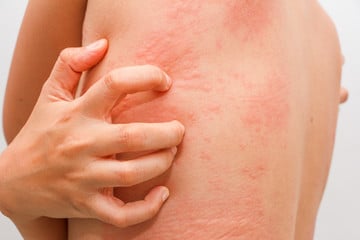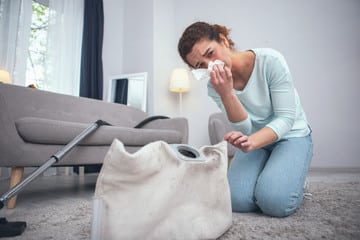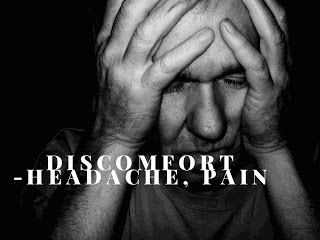Did you know that most allergies are incurable? Yes! That is true! However, allergist can help you manage the allergy symptoms.
So what are Allergies?
When the body immune system comes into contact with the foreign substance and the immune system translate, it has been harmful; that is when allergies have occurred. The reactions of allergies differ from one person to another, depending on the type of allergy they have. To some people, the result can be severe to the point of life-threatening while for others, and it's just a small reaction or irritation.
The antibodies which are in the human body tend to react to the allergens, hence resulting in an allergic reaction.
What Are Symptoms Of An Allergic Reaction?

Allergy symptoms differ from another depending on the type of allergen that one reacts to. Most of the body parts that are affected by allergy reaction are on the skin, guts, eyes, nose, and sinuses. These symptoms include:
- Sneezing
- Fainting
- A decrease in blood pressure levels
- Coughing
- Skin Rashes
- Swelling of the lips and tongue
- Shortness of breath
- Itching on the skin and nose
- Anaphylaxis
- Hives on the body
Anaphylaxis – it is a severe allergic reaction that might be life-threatening. A research report published in The Journal of Allergy and Clinical Immunology shows that anaphylaxis mostly affects the respiratory system and the skin. Some of the symptoms may include:
- Burning sensation
- Shortness of breath
- Diarrhea
- Coughing
- Nausea or vomiting
- Loss of consciousness
What Causes Allergic Reaction?
- Food- such as peanuts, milk, eggs, and fish
- Medicine- mostly penicillin
- Latex
- Insects- bees and wasp
- Airborne allergens- such as animal dander and pollens
Risk Factors that Triggers Allergic Reaction
- Having another allergic condition
- Having asthma
- Family history of having allergies
- Being a child
Different Allergy Treatment Alternatives
There are several ways of keeping allergy reaction at bay. The allergy treatment doesn’t have the same impact or effectiveness on people. And the main reason for this is just as mentioned early in this article that is all depends on the type of allergen.
It is always good that you seek to find out the type of allergic reaction that you are suffering from before you opt for a treatment method. If you’re having any difficulties determining which the most suitable treatment method is for, you can always consult allergy treatment Hawaii for treatment.
Below are the different alternatives methods that will be you in treating allergy reactions.
Allergen avoidance
It is the best way of preventing allergy and keeps those allergens at bay. Firstly, you have to ensure that your house is well cleaned and is free from any allergens. More of the allergens are found on surfaces like carpets, mats, on top of shelves and furniture unlike in the air. And this is why it is vital to thoroughly clean your house to prevent and control any allergy triggers.
Ensure that your vacuum cleaner has HEPA filter since it helps to trap all pollen particles that are attached on your carpet or furniture. Remember, when doing the cleaning always put on your dust mask to keep allergens out of your nose and mouth.
Secondly, during allergy season, avoid engaging in activities that are outside because this is the time when pollens are high in numbers. Moreover, in the morning, pollens are very high and also when it is warm and windy.
Thirdly, keep your nose clean. After a busy day, when you get into the house, shower, have a change of clothes and shoes.
- Immunotherapy
Immunotherapy is the treatment that is used to treat severe allergies, the ones that can’t be treated by other alternative methods. In this method, one is injected with purified extracts of allergen, and this is done for a couple of years.
Alternatively, one is given tablet which is usually placed under the tongue till it dissolves.
Antihistamines
These are medications that treat minor allergic reactions. Antihistamines produce histamines, which play a crucial role in reducing allergic symptoms. Caution; pregnant women and people with liver conditions should first consult their doctors before taking any antihistamines medicine.
Emergency epinephrine
Emergency epinephrine kit is meant to be used in times of emergency. It is advisable that people who suffer allergic reaction should always be having epinephrine shots at all times. Take note that epinephrine shots reduce symptoms of response until you get treatment.
Nasal Sprays
It was suitable especially to those people who have coughing and sneezing symptoms since it helps in reducing them.
Saline sinus rinse
It helps to clear the airways and eliminates allergens. You can purchase or make yours at home by following this procedure.
- Mix 1 spoon of baking soda and two spoons of salt
- Add the mixture to boiled water
- Let the mixture dissolve in water
There, you have your saline sinus rinse.
RELATED READING



